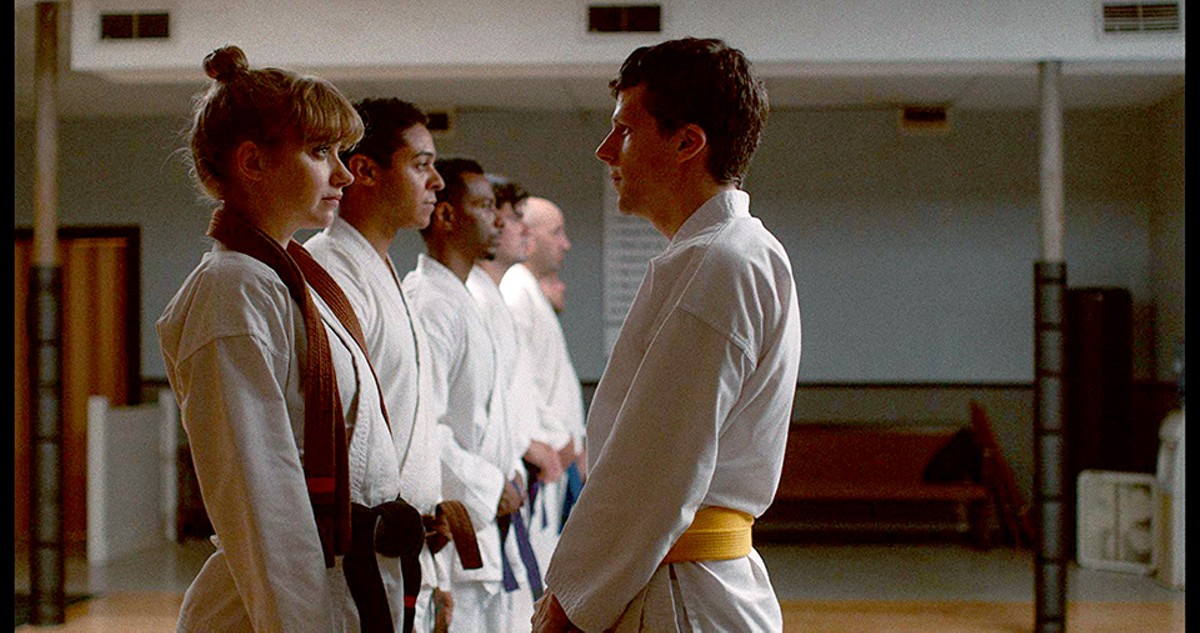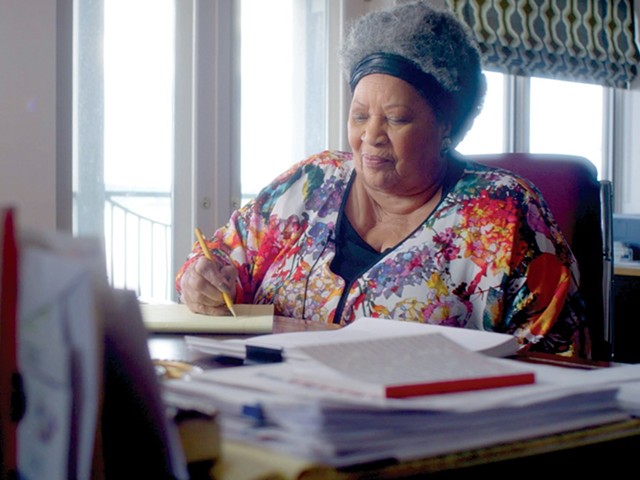The age of irony, the prevailing sentiment of the 1990s, reached a turning point in the spring of 1996 when Homer Simpson went on stage with the Smashing Pumpkins. His act, which consisted of getting hit in the belly by a cannonball, provoked the following exchange between two young audience members:
Youth 1: "Oh, here comes that cannonball guy. He's cool."
Youth 2: "Are you being sarcastic, dude?"
Youth 1 (shrugging sadly): "I don't even know anymore."
The zeitgeist, shaken by the realization that no aspect of reality could escape becoming a Simpsons joke, doubled down; where the voice of irony once said, "Look, here is a thing that people once took seriously," the New Irony simply said, "Look, here is a thing." Don't worry, Simpsons kid; you don't have to know anymore.
The Art of Self-Defense is steeped in the no-longer-all-that-new irony. It's an odd and ultimately unsatisfying film, a Kafkaesque fable about violence and masculinity told with a cold archness that shifts from lightly comic to cold indifference. It's a calculated exercise in anti-sentimentality, content to put its characters through strange, inexplicable events without expecting much of a reaction on the part of the viewer. You can find its hero and his numerous ordeals mildly amusing, but you're not expected to care.
Jesse Eisenberg, in some ways ideally suited for the role, plays Casey Davies, a meek bookkeeper so reserved that he's studying French but focusing on translating phrases like "I don't want any trouble." Walking out late at night to buy dog food for his beloved dachshund (the oversized bag is simply labeled "Dog Food" – a nod to the generic products of Repo Man?), Casey is attacked by a gang of motorcyclists and beaten into unconsciousness.
Upon recovery, Casey contemplates buying a handgun (the film contains several jokes about the danger of handguns but remains somewhat ambiguously awestruck by them) but takes a different path when he stumbles across a local karate school. Dominated by a charismatic sensei (Alessandro Nivola, who is both admirably restrained and convincingly oily), the school offers Casey a new, hyper-masculine world, one where people described karate moves in terms like "think of it as you striking my foot with your body," and speak so quietly they make the hosts of an average ASMR video sound like Gilbert Gottfried.
Casey is rapidly hooked, identifying so intensely with his status as a yellow belt that he only buys yellow items when shopping for groceries. Drawn into the sensei's inner circle, he's seduced by the violence and the sense of belonging and almost unaware of the increasingly strange behavior around him. The first half of the film shows Casey's spiritual (in a very loose sense) growth; the second pulls him into a more tangled plot involving blackmail, revenge and psychological terror. He's both monster and victim; the film doesn't take sides, treating both possibilities as casual jokes.
The Art of Self-Defense is essentially a one-joke movie, the joke being that the characters are passive and emotionless even in the most intense moments. The performers rise to the challenge of keeping their straightest faces (Imogen Poots is especially good in a relatively thankless role as the dojo's sole female student), a self-defeating project given the film's intentionally aloof tone. Director Riley Stearns has created such a self-consciously cool atmosphere that the film ultimately conveys nothing more than a kind of self-admiration. It respects its own smug cleverness but feels nothing but contempt for its gullible puppet characters. Is The Art of Self-Defense being sarcastic, dude? It's a film for people who think sarcasm is better than having no voice at all.






